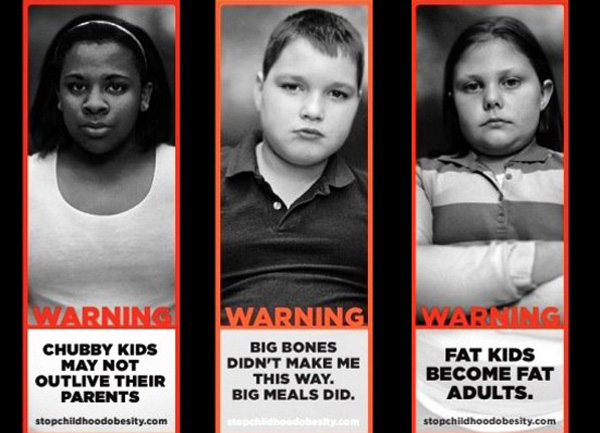Imagine a person just standing there minding his or her own business, and that person happens to be fat. If you place a clever caption underneath of the photo pointing out just how fat that person is and suddenly, somehow it becomes funny, right? Wrong. I’m sure you’ve these photos floating around on the interwebs. This is what is referred to as fat-shaming.
Personally, I have never found any photos exploiting overweight individuals as a “joke” to be funny at all. Being overweight in itself is not funny. And I have to wonder why this type of discrimination and bullying is still so acceptable in our culture. Even in Hollywood, consider how much negative attention a celebrity gets when they gain weight. Their image is shown on the cover of a magazine with a caption stating something about how fat they’ve gotten, and we’ve allowed that to be acceptable!
I gained a great deal of weight in my early teenage years and in high school, I was somewhere over 200 pounds. My saving grace was that I was funny and well-liked, so I didn’t become the target of much bullying (and most people would never have made fun of me to my face). I thank my lucky stars that things like Facebook and Twitter (heck, even cell phones or texting!) didn’t exist back then, because it’s so much easier to bully someone when you’re sitting behind a computer.
24-year Caitlin Seida had her own embarrassing and hurtful experience with fat-shaming via social media. She woke up one day to find recent Halloween photos of her plastered on a webpage that was dedicated to making fun of people. Though Caitlin hadn’t done anything wrong or provoked anyone, she was the latest target. Because of her size, apparently she wasn’t allowed to go out and dress up for Halloween (and have fun) like everyone else.
There are those individuals that claim to be helping overweight individuals by blatantly pointing out how fat they are. The thought is, they already know they’re fat, so if others constantly point it out and bully them, it will lead them to change. To me, that whole idea is absurd and could lead to much more serious and/or devastating actions.
One Georgia-based campaign to fight childhood obesity has caused quite a bit of controversy. Here’s one of the ads featured in the campaign:

Has this campaign gone too far? Is it really fair to use overweight children as an example of what not to be and is not acceptable? The creator of the campaign wanted to resort to “shock value” and give people a wake-up call to see that childhood obesity is a common problem. While I agree that efforts to help kids get active and maintain a healthy weight should be a priority, I also think that sensitivity should be a factor. When I look at the photos of these children, I can only focus on how sad they must feel to be given so much negative attention.
Have you been a victim of fat shaming?
Also Read:
New Fat-Shaming Commercials Do More Harm Than Good in Obesity Prevention Efforts

